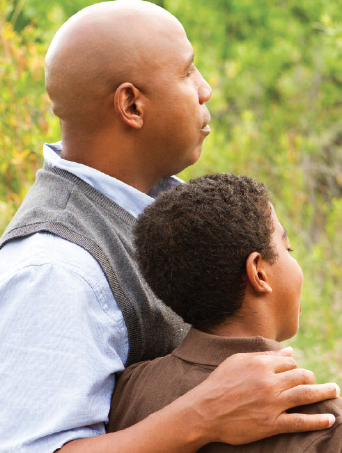Expressing Condolences With Care
The news that a friend, colleague or acquaintance has passed away is difficult in many ways.
At the same time you're facing your own sadness, you may be at a loss about what to do or say to the bereaved. You want to help, but aren’t surehow.
The most important thing to do is to express your condolences. In doing so you are letting the bereaved know that you cared about their loved one and that they are not alone in their grief.
When you see the bereaved, a hug, holding hands or asimple handshake helps connect them to the living world. Simple phrases such as "I’m sorry"; "He was a good friend";
"I was blessed to know her"; or "My sympathies to your family" are appropriate. You do not have to say a lot. In fact, it is often better to let the bereaved lead the conversation. If they're uncomfortable speaking, then a concluding phrase such as "Please let me know if I can help you in any way" or " My prayers are with you" affirms that you care for them and establishes a connection for the future.
If you can't see the bereaved in person, a telephone call is appropriate. Ask how the family is doing and be a good listener. It is important for people to feel they can talk to someone about their experience and emotions. Don’t hesitate to talk about the deceased since it often rekindles fond memories, enabling the bereaved to remember life’s blessings despite their loss. The same phrases mentioned above may be used to start and conclude the call.
Written condolences are also appreciated, whether you know the deceased’s family well or not. Receiving a personal note on stationery or a purchased sympathy card helps bereaved families realize that others share their loss. Whether you use a personal note or card, a brief explanation of your relationship to the deceased will help the family put you in context. In addition to the thoughts mentioned above, it's always good to express what the deceased meant to you and to reinforce that he or she will be missed but fondly remembered.
If possible, going to the funeral home for a funeral service or viewing is appropriate, even if you do not know the family well. At the funeral home you will find a register book where you should write your full name, nickname if applicable and your relationship to the deceased if it is not obvious to the family.
Many people send flowers as an expression of sympathy. If you choose to send flowers, be sure to attach a short note such as "With deepest sympathies" or "My heartfelt condolences," sign your full name and how you know the deceased, whether it is from work, the gym, a club, church, etc.
Some families specify a particular charity or organization where contributions can be made in lieu of flowers. If you choose to make a contribution, ask the funeral director what organization has been specified and how to contact that organization. Traditionally, the organization will send the family a notice of your contribution.
Keep in mind...
- The expression of condolences is important; it's the first step in accepting the loss and beginning the healing process for you and the deceased’s family.
- However you choose to express your condolences, it is essential to clearly identify yourself. This is a confusing and emotional time for the family. You can help by establishing the connections for them.
- No matter which form you choose to express your sympathies, do it as soon as possible; rather than having to share your feelings in an awkward social environment or the workplace at a later date.








Comments